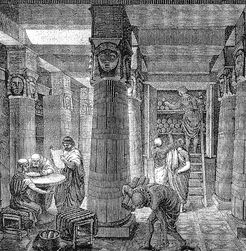
-I want to see if republicans have academic research to counter what I have so far.
-I want to see how well the studies I've found so far stand up to scrutiny.
 Prof. Bjørnskov, Aarhus University
Prof. Bjørnskov, Aarhus University On the second question, we got that from the reviewers. That's the reason we're doing the IV estimates in the paper that - so far as is possible - deal with the causality issue. Besides, if we had claimed that monarchies create growth, it would be a plausible argument that growth just allowed monarchy to survive. But since we claim that monarchy only affects growth around major institutional changes, I think it's much more difficult to claim the reverse causality. Anyway, we did what we could to make sure that our estimates are not biased."
 Prof. Kurrild‐Klitgaard
Prof. Kurrild‐Klitgaard 2) I understand your point but I am not sure I understand why it should be a particular problem here rather than in other regression studies (and this is in fact a panel study with a large number of observations). As you can see we have controlled for a very wide variety of other factors (including a very large number of controls suggested by various reviewers), and the results have remained robust. We may still need to fully understand the precise 'link' but I have no doubt that there is a connection."
The first one I found was a 2012 study called, A Blessing and a Curse? Political Institutions in the Growth and Decay of Generalized Trust: A Cross-National Panel Analysis, 1980–2009 by Blaine G. Robbins. This study has "unbalanced panel data are for 6 time periods with a total of 74 countries and 248 observations". Unlike the previous study this one focuses more on trust over time and shows that while the trust levels in monarchies are rising or stable, other observed groups differed. Most importantly it confirmed the previous work as not being a fluke.
As always, the new studies have been added to Useful Links.
Loyally Yours,
A Kisaragi Colour
 RSS Feed
RSS Feed





